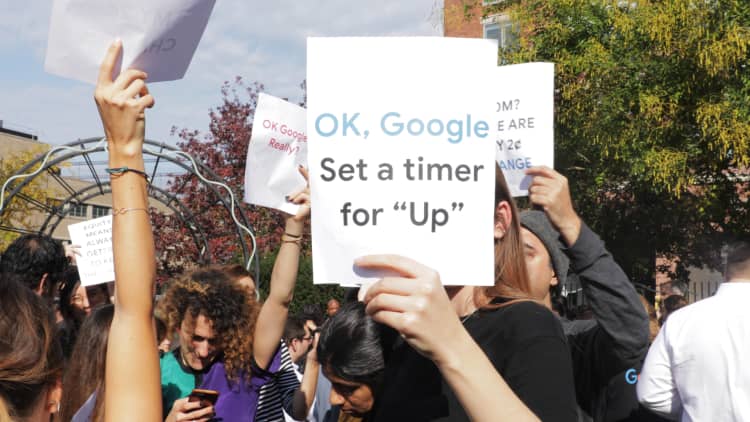People often ask Daina Trout how her company Health-Ade Kombucha grew from a side hustle run from her apartment into a company with more than 200 employees.
It's "really simple," she tells them. It's all about the culture interview, one based purely on whether or not an applicant fits the company's values. Even if a candidate's resume is perfect, failing the culture interview will take a person out of the running for the job.
Getting that culture fit is the only way to keep the "wheels from falling off" during extreme growth, Trout says.
The culture interview is conducted by someone totally separate from the candidate's application process. In fact, the interviewer won't even see the candidate's resume. About 20 staffers at Health-Ade are trained to do culture interviews including Trout, who makes time to do a handful each year.
Health-Ade does the culture test in the final stages of the interview process, when managers are really excited about a candidate and know the person has the right skill set, Trout says. "They're not assessing [candidates] for their ability to do that job, they're assessing them for their culture fit," Trout says.
In the culture interview, each candidate answers between four to eight questions related to the company's values, which include grit, optimism, authenticity and leadership. "They're soft values so objective measurements aren't possible," Trout tells CNBC Make It. "We're looking for the interviewer or manager to use these as [guides]."
The questions during Health-Ade's culture interview are phrased more conversationally than interview questions asked during their traditional interview.
For instance, instead of asking "What is your biggest strength?" applicants during the culture interview might be asked "What is your ninja power?" Trout wants candidates in the culture interview to be more candid and show their true personalities rather than give a cliched response.
With the question "What's the worst work day you've ever had?" Health-Ade evaluates candidates for the company's value of authenticity.
Trout uses this question to find staffers who can acknowledge when they had a hard time or made a mistake. She also wants to ensure candidates learned a lesson from a tough time.
"Does the person demonstrate that they have grit?" Trout asks. "They either do, or they don't."
Above all, she wants honesty. Sugarcoating won't fly at the company, but neither does holding a grudge. "The answers you get really tell you about the person," Trout says.
Trout likes to reframe the question "What is your biggest weakness"?' by asking "What are you currently working on in yourself?" This question gets a more specific response and can gauge a candidate's honesty. "You really get so much out of an answer, and you can see how the person positions the event," Trout says. "It really tells you a lot about who they are."
Trout says it can be tempting to hire someone who shines on paper but doesn't fit the company culture. When you're at the stage where you need more experienced employees quickly, it can be easy to overlook that a candidate isn't a good fit.
There were times, she says, when she "knew in her heart [someone was] kind of an a--hole," but hired those well-qualified candidates anyway. She ended up firing those candidates.
Companies looking to follow Health-Ade's model should keep a few key points in mind, according to John Lees, a career coach and the author of "How to Get a Job You Love." He says that the success of Health-Ade's culture interviews depend on the quality of the questions asked.
He says companies looking to use this method should ensure their questions require answers with concrete examples from the candidate's experience. Companies seeking a culture fit should avoid questions that would prompt a candidate to simply agree with the company's value statement.
"You only get differentiating evidence when you get people to give you narratives of how they have actually behaved in real workplaces under pressure," he says.
Trout agrees. "You do have to construct these questions in a way that you don't lead [candidates] to the answer you're looking for," Trout says.
Lees says Health-Ade's approach also depends on whether the organization has an accurate view of itself. Values often really describe the way an organization would like to see itself, Lees says. If the way a company operates doesn't match the answers it wants to hear, the company will still find the wrong candidates.
Health-Ade swears by its culture interviews, which it has done since its earliest days. The company, which started brewing kombucha for farmers markets, now brews millions of bottles a month that are sold in 16,000 stores. Trout believes the culture interviews have been integral that growth.
Trout says these special interviews are the reason other companies went "boom, splat" during their growth phases and Health-Ade never did.
Like this story? Subscribe to CNBC Make It on YouTube!
Don't miss: Indra Nooyi shared a work regret on her last day as PepsiCo CEO


